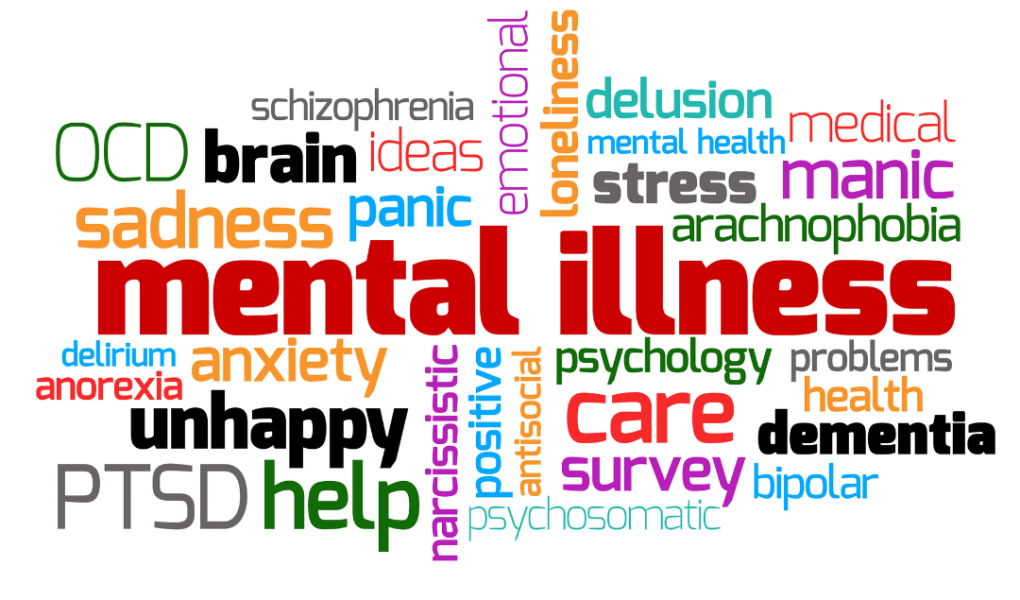If you’re an individual who has been struggling with their mental health, then you know the struggle is real. You are not alone in feeling these troubles and this article will give a brief overview of some common mental health problems that your friends and family may not have known about.
In this article, we’ll cover common mental health problems and how they affect people. We’ll also cover what causes these illnesses, what methods of treatment there are, and how they can be prevented.
Types Of Mental Illnesses
There are many different types of mental illnesses, each with its own set of symptoms. Some mental illnesses are more common than others, and some people may experience them more often than others. Here are some common mental health problems:
- Depression: Depression is a serious mental illness that causes significant sadness and mood swings. People with depression may have difficulty concentrating, feel hopelessness and despair, experience a loss of interest in activities once enjoyed, and sleep poorly.
- Anxiety: Anxiety encompasses a broad spectrum of feelings, from mild unease to severe fear, and it has the potential to disrupt daily life, leading to stress-related issues like insomnia and heightened nervousness. In an effort to address this challenge, individuals often explore various approaches such as over-the-counter medications, natural supplements like thca hemp flower, yoga, engaging in hobbies, and a myriad of other strategies.
- Bipolar Disorder: Bipolar disorder is a condition in which a person experiences alternating periods of high (manic) energy, or elation, and low (depressive) energy for at least two weeks in a row. Mania can make someone feel very active and excited about life, while depression can cause feelings of hopelessness and worthlessness.
- Sex Addiction: This disorder may result from unresolved trauma, high consumption of pornographic media, or a high libido. That said, sex addiction often carries a heavy stigma, making it challenging to seek help. It’s important to note that sex addiction can have severe consequences on individuals’ interpersonal relationships and self-esteem, significantly impacting their daily lives. To address this condition, patients need to collaborate with mental health practitioners and may also find support groups beneficial. Furthermore, this condition can not only disrupt the life of the patient but it can also seriously impact their partners and their relationship. Sometimes even the partners of addicts tend to join a spouse of sex addict support group or seek professional counseling to navigate the challenges they encounter and to address its impact on their well-being.
Symptoms Of Mental Illnesses
- Changes in mood or behavior
One of the most common symptoms of a mental illness is a change in mood or behavior. This can include feeling sadder than usual, feeling more anxious or agitated, or experiencing changes in sleep patterns or appetite.
Some people with mental illness may also have difficulty concentrating or making decisions. If you are experiencing any of these changes, it is important to reach out for help from a mental health professional.
- Withdrawal from friends or activities
This can be a sign that something is wrong and that the person is not coping well. Withdrawing from others can be a way of coping with feelings of anxiety, depression, or stress. It can also be a sign of paranoia or psychotic symptoms. If you are worried about someone who is withdrawing from activities, it is important to talk to them and see if they are willing to talk about what is going on.
- Trouble sleeping or eating
Some mental illnesses can lead to issues with sleeping or eating, encompassing disorders like insomnia, anorexia, and bulimia. Difficulty sleeping may manifest as a symptom of mania, while eating disorders can signal depression. If someone isn’t getting enough sleep or not eating adequately, it can profoundly impact their mood, energy levels, and ability to concentrate. Ensuring enough sleep is crucial for mental and physical health, and exploring remedies for sleep disturbances is vital. Tetrahydrocannabinol (THC) is a compound found in cannabis that has been studied for its effects on sleep. THC gummies have also become a popular remedy for those looking to improve their sleep quality. Some individuals may use THC Gummies For Sleep, as THC has sedative effects that can help induce sleep in some people. Apart from that, establishing a regular sleep routine, limiting screen time before bed, avoiding evening caffeine, and practising relaxation techniques can be beneficial. It’s worth noting that certain terpenes found in cannabis also have properties that can promote better sleep and regulate appetite. Those interested in its benefits or seeking more information can refer to a terpene guide for a better understanding.
- Difficulty concentrating
Mental illness can manifest in a variety of symptoms, some of which can be fairly universally experienced, while others can be more specific to the individual. Difficulty concentrating is one such symptom that can indicate the presence of a mental illness. When someone is unable to focus or pay attention, it can interfere with work, school, and personal relationships. Additionally, difficulty concentrating can be accompanied by other symptoms such as anxiety, depression, or paranoia. If you or someone you know is struggling to focus, it may be indicative of a larger problem, and professional help should be sought.
- Feelings of hopelessness, worthlessness, or excessive guilt
If you are feeling hopeless, worthless, or excessively guilty, you may be suffering from a mental illness. These feelings can be accompanied by other symptoms, such as depression, anxiety, and fatigue. If you are struggling to cope with your emotions, it is important to seek professional help. A mental health professional can assess your symptoms and provide you with the treatment you need to improve your quality of life.
Treatments For Mental Illnesses
There are many different treatments for mental illnesses, and each person’s illness is unique. Some people may need medication to control their symptoms, while others may benefit from therapy or counseling. Treatment options may also vary depending on the severity of the mental illness.
If you’re struggling with a mental health problem, it’s important to talk to your doctor or therapist about what might be best for you. There are many resources available in your area that can help you get started on the path to recovery.
When it comes to mental health, most of us tend to feel like we know enough. But the reality is that there are a variety of mental health problems, and it’s important to be informed about them if you want to help someone who is struggling. By being more aware, we can start to build a community that better understands and supports people when they need it the most.




